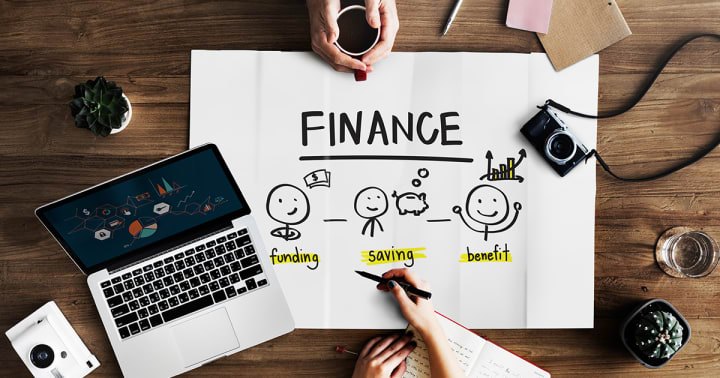Introduction
Your 30s are an essential time to start building good Smart Money Habits in Your 30s. This decade has significant life changes, including career growth, family planning, and homeownership. Developing good financial habits is the key to your future and long-term goals as you move through these transitions. This curated list of important financial measures leads to a stable financial future. These strategies will help you lay the groundwork for your finances and bring peace of mind as you navigate this pivotal life stage.
Create a Comprehensive Budget

The first step in developing a smart money habit in your 30s is a complete and full-fledged budget. Budgeting enables you to monitor your income and outgoings to keep your spending on track. List all income sources and break down monthly expenses into categories, like housing, utilities, groceries, and entertainment. Take note of your spending habits to help cement a change in the right direction in the areas that don’t serve your purpose best. In your mind, or on paper, commit to go over your budget regularly to stay on track and adjust it if your financial circumstances change.
Build an Emergency Fund
Related: An emergency fund is a MUST when building wealth. Keep at least three to six months’ living expenses in a separate savings account. This fund will act as a safety net when something goes wrong, such as a medical emergency, car repairs, or job loss. Building an emergency fund gets you out of the trap of credit cards or loans in tough times. This means implementing your savings, starting small, saving little by little every month, and eventually reaching your required amount.
Pay Off High-Interest Debt
Pay it off if you have high-interest debt, like on credit cards or personal loans. Debt with high interest can mount up fast and stand in the way of your financial goals. Use the snowball effect to pay off all your debts. This strategy, called the avalanche method, minimizes the total interest paid over time. Also, you should renegotiate your debts or better interest rates with them. You will have more money to save and invest by reducing your debt burden.
Consider Contributing to Retirement Accounts
Saving for retirement in your 30s is part of building smart money habits. Invest in retirement accounts such as a 401(k) or an IRA to benefit from tax advantages and compound growth. Make sure to contribute enough to receive your employer’s full match, if applicable, as this is basically “free money.” If you work for yourself, use a Solo 401(k) or a SEP IRA. Building a Comfortable Retirement Nest Egg: Regularly contribute to your retirement accounts.
Invest for the Future

Be very careful with investing; how you set it up is key to building wealth over the years. Once you are in your 30s, you may want to dedicate some of your budget toward investing in stocks, bonds, real estate, etc. So an investment portfolio is diversified, which will help you grow wealth and beat inflation. Please research different investment types and their suitability to your risk level. If you don’t know where to begin, you might work with a financial advisor to develop an investment approach unique to your investment goals and financial condition.
Reassess Insurance Coverage
As your life situation evolves in your 30s, reviewing your insurance coverage is a good idea. Have enough health, life, disability, and property insurance to protect you and your family. Children—You May Want to Buy Life Insurance for Them. Periodic checks of your insurance policies will assist you in identifying coverage gaps and ensuring that you have the protections you need. Following these steps will help you protect your family’s financial future from unexpected situations.
Set Financial Goals
Knowing what the other side looks like — what you are working towards — is integral to forming smart money habits in your 30s. Define your short-term and long-term priorities, like buying a home, financing your children’s education, or retirement. Make a list of your goals with a timeline for achievement. This will keep you fired up and moving towards your economic goals. Re-evaluate your goals periodically, and change them whenever needed, keeping your evolving situation and priorities in mind.
Learn About Money From The Ground Up
Spending that time learning about personal finance is an essential step towards building healthy money habits in your 30s. Learn about finance topics like budgeting, investing, and retirement planning. Consider reading books, attending workshops, and following reputable blogs or podcasts that provide valuable financial knowledge. Educating yourself more about personal finance will prepare you to make savvy financial decisions. By continually educating yourself on economic matters, you can gain the tools you need to take control of your finances and successfully maneuver through difficult financial situations.
Make Use of Employer Benefits
Some employers provide valuable perks that could help your bottom line. Before you sign on the dotted line, familiarize yourself with your employer’s benefits package, including your health insurance plan, retirement plan, and flexible spending accounts. Take advantage of any programs that can help you reach your financial goals — tuition reimbursement and wellness incentives are examples. Taking advantage of all these benefits can lower your costs and put more money in your pocket, which is essential for your long-term financial health.
Monitor Your Credit Score
Credit score management is essential for financial stability. Check your credit report regularly to verify its accuracy and catch any issues that could impact your score. Make timely payments, maintain low credit utilisation, and avoid opening too many new credit accounts simultaneously. A good credit score can allow you to qualify for better rates on loans and credit cards and save you a lot of money in the long run. You could also have laid the groundwork for financial success by proactively managing your credit in your 30s and beyond.
Plan for Major Life Events

As you enter your 30s, it’s essential to prepare for key life events that could affect your finances. These might involve getting married, having kids, purchasing a home, or launching a business. All of these milestones involve financial planning and consideration. Direct money into funds for these future expenses and develop an overall budget plan for your evolving situation. Making plans for big life events helps you be ready and know how to handle the costs.
Seek Professional Financial Advice
Speak to a financial expert. If your financial situation is becoming overwhelming, consider speaking to a professional. A financial advisor can develop a personalized roadmap based on your goals and conditions. These accountants may be able to guide budgeting, investing, and retirement planning to help you make smart choices. Another benefit of working with a professional is having someone who can ensure you stay on track and motivated toward implementing smart money habits in your 30s. Do not hesitate to ask for help, as it can enormously impact your finances!
Conclusion
In summary, creating smart money habits in your 30s is essential to building financial security and stability. By following these four tips — budgeting, building an emergency fund, dealing with high-interest debt, and investing for the future — you can make a solid foundation for your financial future. You will further improve your financial path by establishing clear financial goals, acquiring knowledge about personal finance, and consulting professionals when necessary. Utilizing these key strategies will help you to overcome the potential difficulties of this critical decade of your life and lead to a safe and secure future for you and your family.
